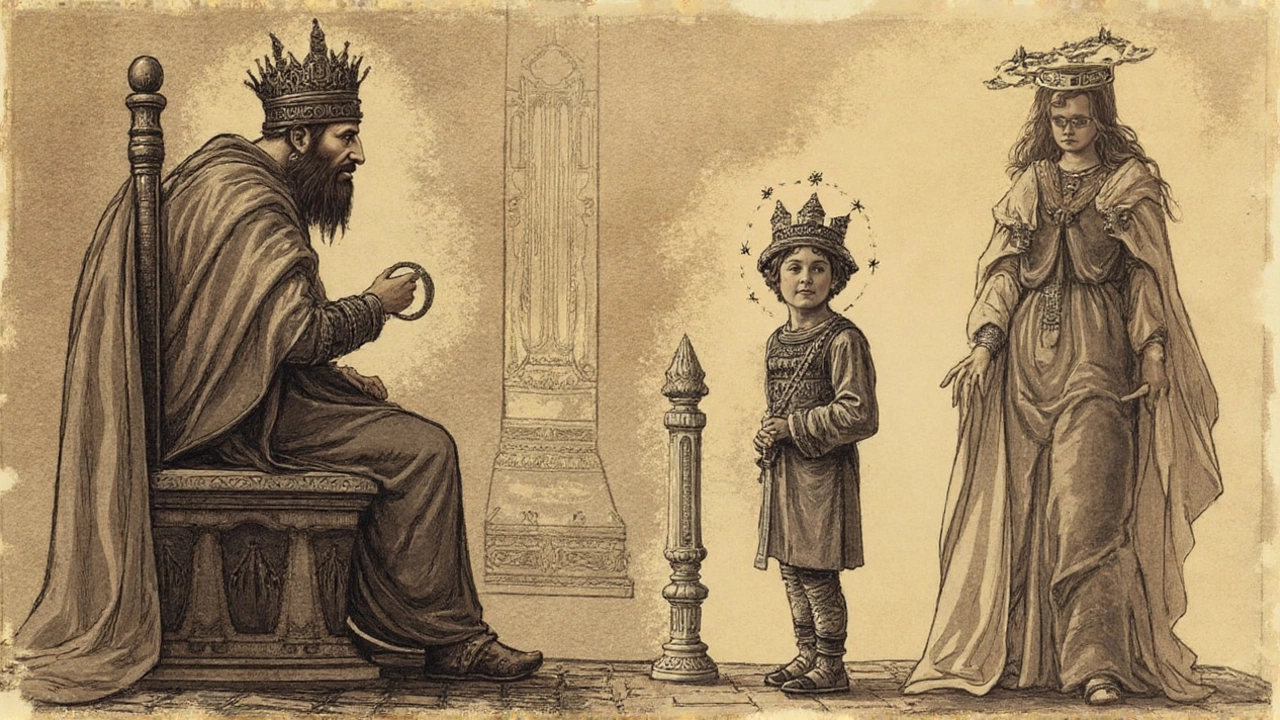Understanding Malchuyot: The Kingship Theme of Rosh Hashanah
From the moment the shofar sounds, the sanctity of the day is framed by a single, powerful idea: God is not just holy, He is a king. In the Rosh Hashanah service, the third blessing of the Amidah swaps the phrase "HaKel HaKadosh" (Holy God) for "HaMelech HaKadosh" (Holy King), a subtle shift that rewires the entire spiritual atmosphere. This linguistic switch is more than a grammatical tweak; it signals that the day is about acknowledging sovereign authority before we even begin the personal accounting that follows.
The Mussaf prayer drives the point home. It opens with malchuyot, followed by zichronot (remembrance) and shofarot (shofar blasts). Ten verses from the Tanakh are woven into the text, each painting a picture of a ruler who creates, sustains, and judges the world. The final blessing crowns the theme: "Blessed are You, God, King of the entire world, Who sanctifies Israel and the Day of Remembrance." By the time the congregation returns to its seats, the idea of divine reign has been stamped onto every heart.
Historically, this focus traces back to the very first Rosh Hashanah, the moment Adam first saw his creator. Tradition holds that Adam’s immediate reaction was to proclaim, “God is King; He adorns Himself in majesty.” That spontaneous acknowledgment set a template: the day is a remembrance of a primordial encounter with sovereignty.
But there is a catch. Adam’s declaration required no effort; it was a natural response to an overwhelming divine presence. Modern observance, however, demands participation. We must deliberately stir a remembrance from below, echoing the first day through prayer, fasting, and introspection. In other words, the ritual asks us to re‑create that original spark on our own terms.
Facing the Paradox: Judgment, Celebration, and Cognitive Dissonance
The clash between a king’s authority and human frailty creates a built‑in tension. On one side sits the lofty idea of a ruler who knows every intention; on the other, we have festive meals, honey‑dripping apples, and the joyous clatter of family gatherings. How can we celebrate while a cosmic ledger is being opened?
The answer lies in the double‑edged nature of divine kingship. A monarch wields both justice and mercy, and Jewish thought extends that duality to the Almighty. The judgment that occurs on this day is not arbitrary; it comes from an intimate knowledge of each person’s heart. This knowledge softens the severity of the verdict, allowing believers to hope for a favorable inscription in the Book of Life.
From a psychological perspective, this tension can be labeled cognitive dissonance. We hold two seemingly contradictory beliefs at once: we are finite, flawed beings, yet we claim allegiance to an infinite ruler. The dissonance is not a flaw—it’s a catalyst. It pushes us to resolve the inner conflict by either deepening our trust in divine compassion or by adjusting our behavior to align more closely with the king’s expectations.
Practically, the day’s structure mirrors this push‑pull dynamic:
- Morning: Shofar blasts awaken the soul, reminding us that a higher authority is calling.
- Midday: The Mussaf service outlines malchuyot, reinforcing the king’s role.
- Afternoon: Festive meals and communal gatherings provide the celebration that balances the severity of judgment.
- Evening: Personal prayer and reflection turn the abstract concept of kingship into a lived experience.
Another layer of complexity is the timing of Rosh Hashanah before Yom Kippur. The sequence tells us that before we can truly repent, we must first recognize who we are answering to. Accepting divine sovereignty becomes the foundation upon which sincere teshuvah (repentance) is built. Without that acknowledgment, atonement risks becoming a hollow ritual.
The malchuyot theme also asks a practical question: do we live as subjects of a King only when we are in the synagogue, or does that mindset extend to our daily decisions? The answer has ethical implications. If we truly see the world as under divine rule, actions like honest business practices, caring for the vulnerable, and environmental stewardship become natural extensions of worship.
In this way, the day transforms from a mere accounting session into a coronation ceremony—both for God as King and for us as willing subjects. Each year, the ritual offers a fresh chance to renew that contract, aligning personal goals with a higher, universal order.
Ultimately, the tension between judgment and celebration, between limited human perception and infinite divine rule, invites a deeper spiritual engagement. By confronting the dissonance, believers can turn a potentially intimidating concept into a source of empowerment, using the crown of kingship to guide their moral compass throughout the year ahead.
